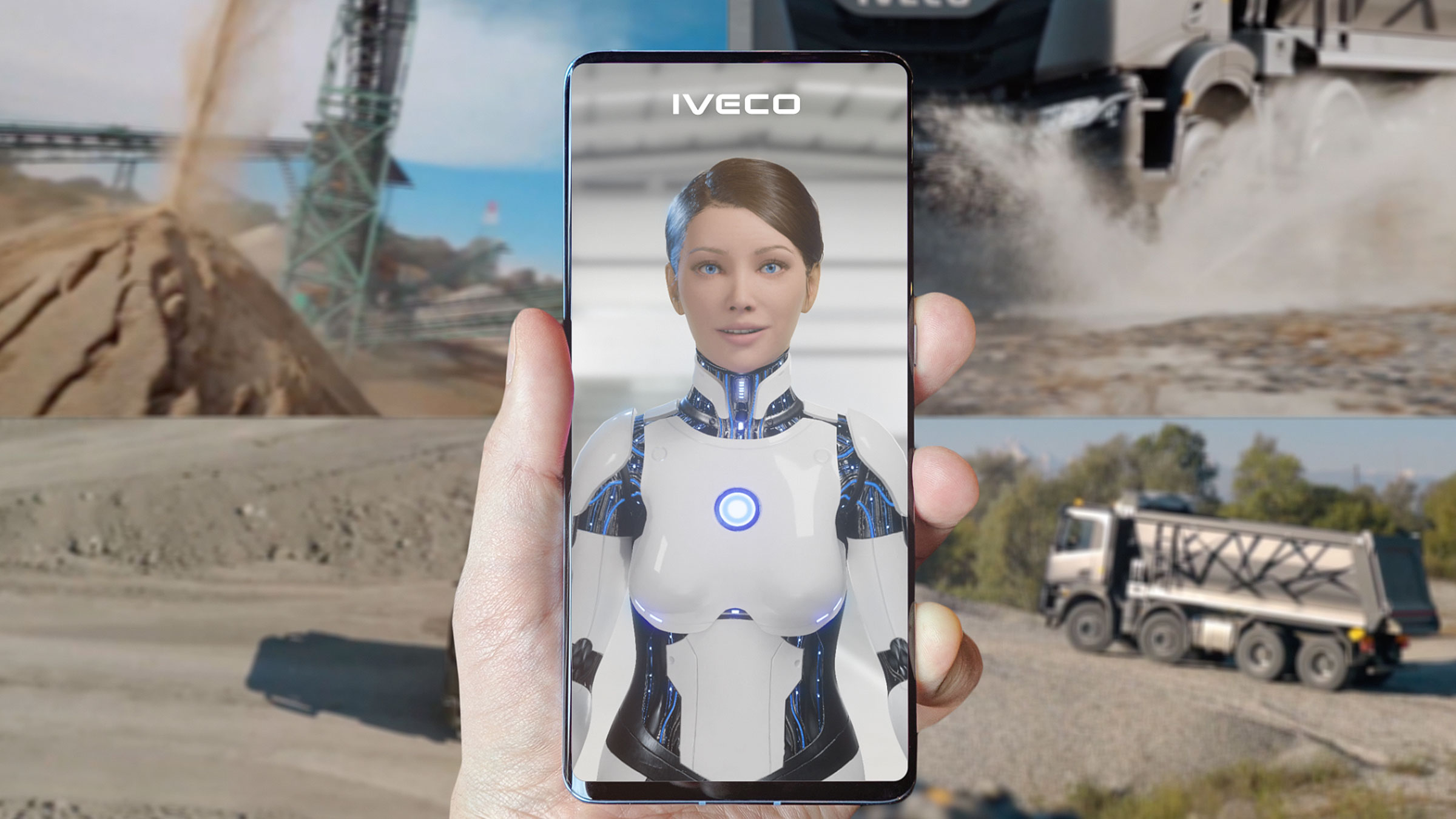The future of Artificial Intelligence: main key issues
It is no longer science fiction, it is the present and it is our reality.Welcome to the Age of Artificial Intelligence! This has become possible and tangible thanks to the countless advances that have been made in this sector in the last decade.
With these innovations, AI is poised to revolutionize multiple sectors in the coming years. Among the most significant trends are the rise of automation, deep learning, ethics in AI and the integration of AI with other emerging technologies such as the Internet of Things (IoT).
As these trends develop, new opportunities and challenges will open up that will redefine how we interact with technology and how it impacts our lives..
Throughout this article, we will discuss the future of AI use in sectors such as education, industry, marketing, and marketing and sales. advertisingThe company will analyze how these transformations are shaping a future where Artificial Intelligence will not only be a tool, but an essential ally in the optimization of processes.
What will Artificial Intelligence look like in the future?
In the long-term future, Artificial Intelligence, along with other technological advances will have radically transformed many aspects of our lives and our jobs..
In this area of work, AI will have made it possible for technology to take care of all those tasks that need to be performed in the workplace. repetitive tasks and that do not require any human skills, so that workers can focus on tasks that do require humanity, strategy and/or creativity.
In terms of the way we currently learn, the AI will personalize teaching to make it simpler, more accessible and more efficient for each of the students. In more artistic areas, the future of AI will facilitate creative processes, allowing creators to cooperate with technology to innovate.
Human-machine interaction will become more natural, thanks to intuitive interfaces that will optimize everyday tasks and improve quality of life. In short, the future of artificial intelligence promises to be a era of collaboration, where technology enhances our human potential in an ethical and responsible manner.
Key technological innovations for AI
The future of Artificial Intelligence will be marked by different innovations and technological developments that will drive its progress and evolution. One of the most remarkable elements is the analysis and processing capacity.
As this capability becomes more and more efficient, the AI will be able to perform more complex calculations in less time, enabling to develop more advanced and accurate models.
The integration of AI with other emerging technologiesThe Internet of Things (IoT) and Blockchain will also play a key role. Similarly, its increasing ability to handle large volumes of data and to deliver audio, video and text content with better quality are also aspects that are being and will continue to be included in different areas, such as marketing and industry.
Next, we will review the four main technological innovations that are making a difference and will shape the future of Artificial Intelligence.
Advanced machine learning (Deep Learning)
Deep Learning, one of the most advanced branches of machine learning, is based on neural networks which emulate the functioning of the human brain. To model and understand patterns in large volumes of data.
This approach has led to significant advances in areas such as the speech recognition, computer vision and text generation, thanks to its ability to analyze information in a hierarchical manner.
As Deep Learning models become more sophisticated, they are capable of performing tasks previously considered the exclusive domain of humans, such as interpret emotions, generate hyper-realistic images or even write creative content.
In the future, Deep Learning will continue to drive the evolution of Artificial Intelligence, with more efficient models such as transformers improving accuracy and scalability. Its integration with technologies such as quantum computing will open up new possibilities in medicine, automation and sustainabilityThe company is consolidating its position as a key tool for solving complex problems in a data-driven world.
You may be interested in → Generative Artificial Intelligence: definition and main applications
Explainable and ethical AI
As Artificial Intelligence advances and becomes integrated into critical decisions in areas such as healthcare, finance and justice, explainable AI becomes a priority. Many people feel a great mistrust in the future of Artificial Intelligence because it does not understand its processes and operation to perform the tasks it is asked to do. This is why it is really important that AI systems are developed with transparency.
On the other hand, there is no future in Artificial Intelligence without a strong commitment to and implementation of ethics. From the elimination of biases in algorithms to respect for data privacy, businesses and organizations ethical challenges must be addressed to avoid discrimination, inequality or negative impacts on society.
In the future, global regulations and standards, combined with ethical design from the early stages of development, will be essential for ensure that AI operates safely, fairly and in line with human values.
Continue to delve deeper into the challenges of Artificial Intelligence in our post → Challenges of Artificial Intelligence applied to the enterprise.
More advanced natural language models
The Natural language models are at the heart of many recent advances in Artificial Intelligence. Tools such as generative models, including GPT, have demonstrated an unprecedented ability to understand and generate text in a coherent and creative way. Enabling machines to interact with humans in a more natural way. Thanks to these improvements, communication barriers have been reduced, making interactions with AI-based technologies more fluid and understandable.
Even taking humanized form through virtual assistants and avatarswhere these natural language models are combined with the nonverbal communication, personality and tone of voice. Virtual avatars like that of Miguel de Cervanteswhere the natural language model of its Artificial Intelligence was trained as a person of the 16th century, a very interesting and demanding training.
Automation and intelligent robotics
Automation and intelligent robotics are revolutionizing the technology in the industryThe new technology, enabling unprecedented levels of efficiency, accuracy and productivity, is now available in the market. Thanks to advances in Artificial Intelligence, the robots can learn autonomously, adapt to new environments and perform complex tasks that previously required human intervention.
The cobots (cooperative robotics) are designed to work together with humans, enhancing its capabilities and enabling a more agile and simpler workflow. This collaboration of humans and machines not only leads to increased efficiency, but also promotes a working environment where employees can engage in more creative and strategic tasks. In the future, intelligent robotics will go beyond industrial applications to become integrated into everyday life.
The future of Artificial Intelligence by sector
As we have seen, several key trends and technologies stand out in the future of Artificial Intelligence. But, how will the AI of the future affect the business world?
From the automation of processes up to the customization of servicesAI is redefining the way businesses operate and connect with their audiences. Below, we explore how different industries are embracing these technologies to lead the future.
Education 4.0.
The future of Artificial Intelligence in the education sector is focused on the customization y accessibility of learning. With AI-based tools, such as virtual tutors and adaptive learning systems, students will be able to receive content tailored to their level, pace and specific needs.
In addition, the AI will allow analyze progress in real timeIt will identify areas for improvement and offer personalized recommendations to maximize the potential of each student. It will also be key to eliminating geographic and linguistic barriers, facilitating access to quality educational resources anywhere in the world.
This approach will transform education into a more inclusive, interactive and effective experience for all ages.
Augmented industry and logistics
Artificial intelligence of the future, as far as the industrial and logistics sector is concerned, will be defined by the advanced automation and optimization of resources, processes and supply chains. Companies will be able to predict demand more accurately, manage inventories efficiently and optimize transportation routes in real time.
In addition, the robots, cobots and predictive maintenance will transform industrial production and human involvement in manufacturing. Starting the path towards Industry 5.0. more focused on employee wellbeing, sustainability and human-machine combination in factories. These innovations will transform the industry, making it more agile, sustainable and competitive.
If you are interested, visit our post What is Industry 4.0 and what are its main characteristics?
Artificial Intelligence in medicine
With respect to the technology in the health sectorThe Artificial Intelligence of the future promises revolutionary advances in diagnosis, treatment and prevention. Thanks to deep-learning algorithms, AI will be able to analyze large volumes of medical dataThe new technology, identifying patterns that humans might miss, will allow for faster and more accurate diagnoses.
In addition, technologies such as the virtual assistants and personalized recommendation systems will optimize treatments, adapting them to the specific needs of each patient.
This approach will transform healthcare, making it more proactive, efficient and accessible, with a positive impact on the quality of life of millions of people. For example, the healthcare professional could have a support in the diagnosis and recording of symptoms. While interacting personally with the patient, Artificial Intelligence does the work of taking data, making consultations much more up close and personal.
AI-driven marketing and advertising
The Artificial Intelligence of the future, in the field of marketing and advertisingwill be marked by the hyperpersonalization and advanced data analysis. With AI-based tools, brands will be able to create highly segmented campaigns that adapt to individual consumer interests, behaviors and needs in real time.
In addition, technologies such as natural language processing and machine learning will enable generate creative content, identify emerging trends y optimize advertising strategies with greater precision. Not to mention the creation of new channels of interaction with customers such as avatars and virtual influencers. Humanized representations of the brands that personalize messages and recommendations, in addition to offering assistance and customer service at any time and moment of the day.
Artificial Intelligence and tourism
On the other hand, with respect to the technology in tourismThe future of Artificial Intelligence offers amazing new opportunities for companies and professionals. Offering more personalized and efficient experiences. As for example a virtual assistant or personalized butler in a hotel stay. Where each guest has at their disposal a multilingual avatar that recommends activities, answers their questions and attends to all their requests by connecting to the general management of the hotel.
A breakthrough that can also occur in travel agencies, with iurban Cicerone's chatbot and virtual assistant that manages reservations and answers queries in real time. In addition, AI will also play a key role in the operational optimization of airports, cruise ships and museums. By improving resource management and raising customer satisfaction. This approach will make travel not only more comfortable, but also more tailored to the high expectations and customization demanded by travelers.
You can dig deeper into the use of AI in this key industry through our → post. Artificial intelligence in tourism: characteristics and examples.
AI and human interaction
The Artificial Intelligence is redefining human-machine interactionenabling more fluid and personalized connections. One of the most outstanding advances in this area is the development of virtual avatars, which literally put a face to Artificial Intelligence, creating a more humanized experience for users.
These avatars, like the V-E-G-G-A virtual assistants, can interpret emotions, respond accurately and adapt to the context of the conversationgenerating a closer and more empathetic interaction. This not only improves the user experience, but also speeds up and personalizes queries, reinforcing the brands' commitment to offer innovative and high quality services.
The balance between human intervention and automation is essential. AI enhances this collaboration by acting as a complement, providing analysis and recommendations that help employees make informed decisions. In addition, intuitive interfaces and virtual assistants facilitate human-machine interaction, making people feel more comfortable with technology. In short, AI fosters synergistic collaboration, maximizing efficiency and effectiveness in various tasks.
How you can be part of the future of Artificial Intelligence
The future of Artificial Intelligence is already here, and you can be part of it too. From Imascono we invite you to explore the many possibilities of AI in the business world. Those we have seen here and those that will gradually become a reality.
Our innovation team has been working and researching this field since 2018. In these years we have witnessed all of the advances in AI. Advances that we have reflected in our different products and services. Artificial Intelligence services for companies.
Do you want to learn about the opportunities that Artificial Intelligence offers your company?Get in touch with us!




